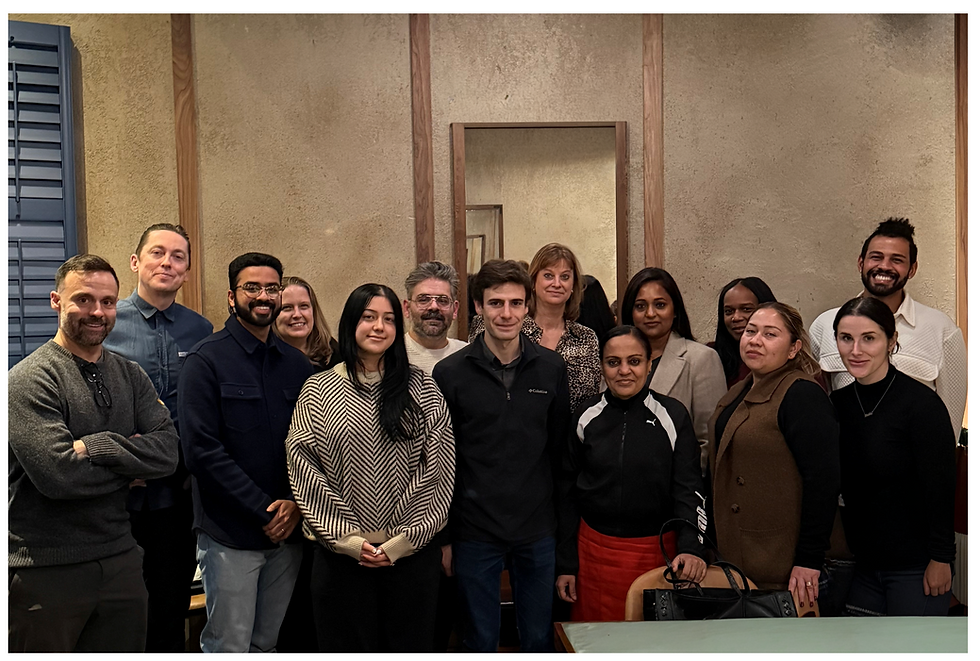Bike Crashes & Psychological Trauma
- Dave Shellnutt

- Oct 11, 2021
- 3 min read
Updated: Oct 26, 2021

Sometimes while cycling, I see the haunting image of a silver sedan in the corner of my eye. It’s not physically there, it’s a flashback from when I was hit by a car.
Flashbacks are common after experiencing trauma, and road traumas are no exception. People on bikes don’t have the same protection as people in cars. Being driven into by someone in a car is violent, unexpected, and often accompanied by serious physical injury.
Accompanying these physical injuries, many bike crash victims we represent experience post-crash emotional and psychological trauma and/or road phobias. Even where the physical injuries are relatively minor, the psychological impact of a crash can be complex and profound.
For many of our clients, it takes months to mentally “get back on the bike.”
Sadly, some never do. There is no straight-line recovery for mental health injuries. Even with treatment, symptoms manifest at different times and in different ways.
We want cyclists to know that Ontario’s No-Fault Accident Benefits regime provides financial support for cyclists injured in collisions with motor vehicles and that includes mental health supports.
If you are in a crash, follow these steps:
1) Apply for Accident Benefits:
People on bikes can access medical treatments through either the involved car driver’s insurance, you own auto insurance (if you have it), or through the provincial insurer in cases of hit and runs. Accident Benefits Guide here.
2) Report Your Symptoms and get a Mental Health Referral:
To access post-crash mental health supports, check in with your family doctor, walk-in clinic, or therapist and report what you're experiencing (nightmares, depression, anger, etc.) Ask for support.
After that, get connected with a road phobia and trauma expert with experience supporting bike crash survivors, like psychologist Fahimeh Aghamohseni.
In February 2020, I spoke about my own post-crash mental health hurdles at a Bike Minds event at Curbside Cycle in Toronto. I explained to the audience that even after returning to the bike, I found myself angry, anxious and scared. I lost the freedom and joy I experienced riding my bike.
Cycling, either for exercise or commuting to work, is a prominent fixture of my own health and wellness routine. Having my release valve taken away and replaced with a pressure-cooker of stress and anxiety was a major problem.

Thankfully, I was able to work through my trauma. Months after being hit by that silver sedan, I was able to recognize my own need for mental health support and accessed it through the Accident Benefits regime.
In our experience, auto insurance companies still raise barriers to recovery. Auto insurance companies responsible for the administration of Ontario’s No-Fault Accident Benefits regime are woefully ill-equipped to deal with the complexities of crash related mental health injuries.
In a shocking number of our cases, we fight with auto insurance companies like Intact and Aviva to support injured people and help them access statutorily mandated mental health supports. [Follow the steps above to properly prepare for when the insurance company ask, "Why?"
Despite public posturing, auto insurers like Intact often don't get it or don't care to.

Doug Ford, relevant Health Officials, and the Insurance industry must launch a mental health review of the Statutory Accident Benefits regime and its administration by private auto insurers.
Mental health treatment ought to be encouraged for the health and wellness of injured people in Ontario.
Beyond the pandemic, mental health injuries must be re-prioritized by auto insurance companies who administer Accident Benefits. Treatment of injured people must be sensitive, focused, and compassionate, not profit driven or re-traumatizing.
Ontario remains a dangerous place for vulnerable road users. Crashes happen.
Cyclists, please be mindful of common post-collision traumas and phobias. You are not alone. You are deserving of support, and you are entitled to access it. As always, we are here to help. Contact us.
Ride safe, friends.
Contact info@thebikinglawyer.ca for a free consultation, legal advice or more information.
**Special thanks for the excellent second set of eyes and thoughts to Ry Shissler who has some great cycling related work of their own you should check out: @RyShissler



